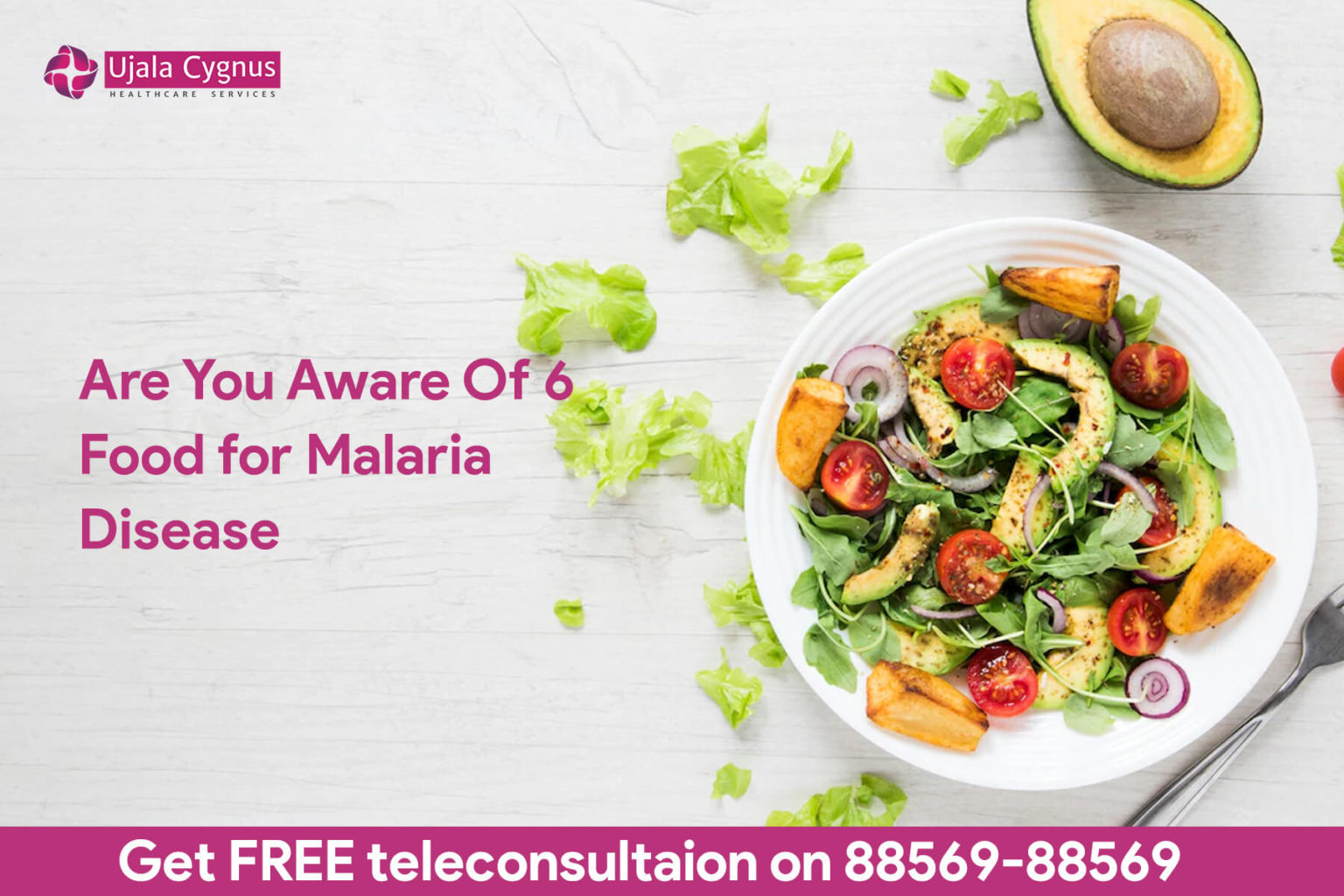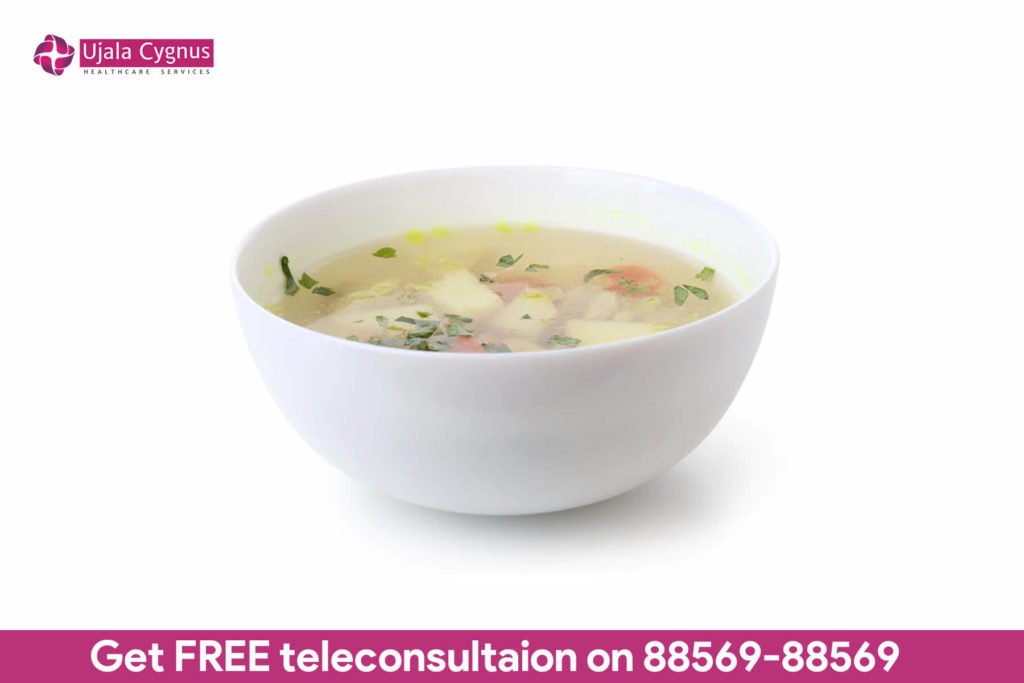Do you know about 6 Foods for Malaria?

With summer at its peak, it’s a time when most bacterial, viral, and parasitic infections become highly dynamic. The first step to coping with such an infectious attack is starting with a well-balanced diet. Therefore foods for malaria and a healthy eating plan that includes adding fresh fruits and vegetables containing vitamin A and C is the right approach to fighting malaria.
If you have malaria, it is the best time to pay attention to your diet. Read this blog to know all the superfoods that can help combat this disease.
How is Malaria Transmitted?
Malaria, a vector disease, gets transmitted by Anopheline mosquitoes. People infected by malaria get their blood platelet counts impacted, leading to weakness, fever, and muscle cramps. To know how malaria infects people, you should know about the life cycle of malaria disease in human beings.
Foods For Malaria
There is no specific dietician chart for malaria, but good nutrition is crucial to improvement. You can add fruits and vegetables like beetroot, carrot, papaya, sweet lime, grapes, berries, lemon, and oranges rich in Vitamin A and C. It helps detoxify and boost the immunity of the patient suffering from malaria.
Here are some dietary tips for a speedy recovery from malaria.

1. Hydration
Hydration is the key, and consuming water regularly keeps you hydrated. You can add the following:
- lemon water
- coconut water
- fruits with a high water content (cucumber and oranges)
When you consume enough liquids, your body stays hydrated and helps flush out toxins properly. It helps in speedy recovery from malaria.
Loss of appetite is another vital symptom seen in malaria patients. Staying hydrated helps maintain your energy levels during the recovery period.

2. Soups
There are soup broths compiled from traditional family recipes that originated worldwide, showing activity against the malaria parasite Plasmodium falciparum, either by curbing its growth or preventing it from maturing. The soup recipes have gained worldwide acceptance through the generations for the treatment of fever.
3. Include Vitamins In Your Diet
Foods for malaria include Vitamins, especially fruits and fresh juices, which are good heads of energy and electrolytes. The citrus fruits help combat the infection with Vitamin C. The red and yellow fruits assist in adding Vitamin A, a crucial nutrient for our immune system and a potent antioxidant. There are also fruits like guava that adds both Vitamin C and Iron to help build up RBC.
4. Have Nuts And Seeds
Nuts and seeds are tiny powerhouses of several beneficial nutrients and healthy fats and proteins. Soaked almonds, or crushed almonds in milk, give a lot in small portions. They are likewise rich in phytonutrients, which help fight the antioxidant stress induced by the infection.
5. High Protein
High proteins are in great need as one loses a lot of tissue. The person needs to start consuming a diet high in carbohydrates and protein, and this could be helpful for the body as the body can utilize the protein. Dals can be converted into a soup and flavored with lemon. Moreover, adding lassi and yogurt to your diet adds protein and minerals.
6. Consuming Fat In Temperance
Foods for Malaria also include fats that are crucial for the body, and this food contains medium change triglycerides. It would help if you avoided as much as possible from your malaria diet. Instead, add Omega 3 fatty acids such as fish, fish oil supplements, flax seeds, chia seeds, and walnuts as they work well in reducing the rash in the body.
| Days | Breakfast | Mid meal | Lunch | Evening | Dinner |
| Monday | Milk & Corn flakes | Tender coconut water (1 cup) + 1 Apple | Parboiled rice (1/2 cup) + Chicken(2pcs.) stew (1/2 cup) | Vegetable soup (1/2 cup) | Boiled rice (1/3 cup) + Mashed potato (2) + Ghee (1tsp) + Warm Rasgolla (2) |
| Tuesday | Chapati (1.5) soaked in Milk (1/2 cup) with 1 spoon sugar | Tender coconut water (1 cup) + 1 Ripe banana | Parboiled rice (1/2 cup) + Fish(1pc.) stew (1/2 cup) | Spinach soup (1/2 cup) | Boiled rice (1/3 cup) + Carrot n potato curry (1/2 cup) + Warm Rasgolla (2) |
| Wednesday | Chapati (2) + Masoor daal soup (1/2 cup) | coconut water (1 cup) + Grapes (1/2 cup) | Yellow daal curry (1/2 cup) + 1/4th fresh lime | Carrot stew (1/2 cup) | Smashed boiled rice (1/3 cup) + Milk (1/4 cup) + Jaggery (3 tsp) |
| Thursday | Rice chip Pulav (1 cup) with peas and carrots | cococnut water (1 cup) + 1 orange | Smashed potato(2) +Boiled rice (1/2 cup) + Boiled egg (1) + Ghee (2tsp) on hot rice | Chicken stew (1/3 cup) | hot rice (1/3 cup) + Fish(1pc) stew (1/3 cup) + Rasgolla (2) |
| Friday | Roti (2) + Moong daal soup (1/2 cup) | Coconut water (1 cup) + Pomegranates (1/2 cup) | boiled rice (1/2 cup) + Chicken(2pcs.) +stew (1/2 cup) | Mushroom soup (1/2 cup) | Rice Boiled (1/4 cup) + Simmered Eggs (1) + Ghee (1tsp) + Hot Rasgolla (2) |
| Saturday | Toast (2 slices) + Custard (1/2 cup) | 2 Chikus + Coconut water (1 cup) | Stew (1/2 cup) + Fish(1pc.) + Boiled rice (1/2 cup) | Carrot braise (1/2 cup) | Milk (1/4 cup) + Jaggery (3 tsp) + Squashed boiled rice (1/3 cup) |
| Sunday | Roti(2) + gram daal (1/2 cup) | Black grapes (1/2 cup) + coconut water (1 cup) | 1/4th fresh lime + Yellow daal curry (1/2 cup) | Spinach soup (1/2 cup) | soup (1/3 cup) + hot rasgolla (2) + fish (1pc) |
Foods to avoid in Malaria
Those suffering from malaria should avoid sauces and pickles in their diet. Avoid coffee, tea, cocoa, cola or any other caffeinated beverages as they are not suitable for your health.
Conclusion
Patients suffering from malaria have fever conditions throughout the illness. They do not feel like eating, but one must remember that our body needs the best nutrition to fight the disease. Foods for malaria include a good diet that focuses on boosting the immune system. Eating the proper diet can keep your body healthy and help you recover from an infectious disease like malaria faster. Therefore it’s recommended to eat well and stay fit.
If you wish to get a personalized diet chart for malaria, you can call our experts for free at 88569-88569.
Also Read this – What do you Know about Malaria disease? Its Causes & Treatment
FAQs Frequently Asked Questions
What Food Should You avoid in Malaria?
Foods that one should not be consumed during malaria include high fiber foods like thick skin fruits, cereals, green leafy vegetables, etc. It would be best to avoid the intake of processed food, junk foods, oily and spicy foods, pickles, etc.
Can I take fruits while treating malaria?
Consuming fruits which are rich in Vitamin A and Vitamin C is the key. It includes lemon, oranges, and papaya, which help detoxify and boost the immunity of the patient suffering from malaria.
Can I take watermelon while treating malaria?
You can drink juices of orange and grapefruit in the initial phases. You can also start intaking fresh fruits like strawberry, sweet lime, kiwi, grapes, papaya, melon, berries, pineapple, etc. They assist you to rejuvenate and build immunity too.
Ujala Cygnus Healthcare Group has 16 hospitals. Kanpur, Rewari, Kashipur, Varanasi, Sonepat, Panipat, Kurukshetra, Nangloi in Delhi, Rama Vihar in Delhi, Kaithal, Bahadurgarh, Karnal, Moradabad, Haldwani, and Agra.
You can book an appointment at your nearest Ujala Cygnus Hospital for any health issue treatment. For any query, you can give a missed call on 88569-88569 and get a free consultation over the phone.
